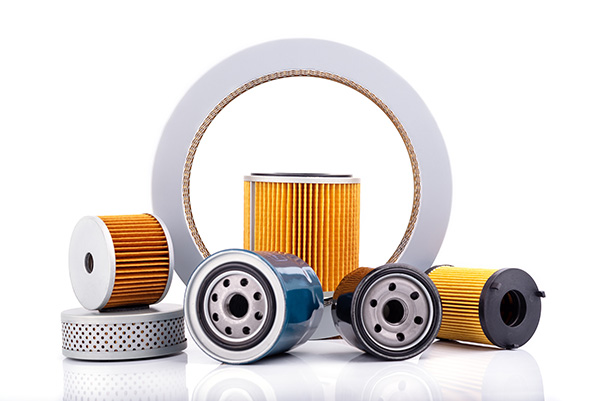
Your vehicle might look simple from the outside, but under the hood and throughout its systems, it relies on several types of filters to keep everything running. Each filter plays a specific role in protecting the engine, cabin air quality, or fuel system from harmful debris and contaminants. Skipping filter maintenance can lead to poor performance, reduced efficiency, and even costly repairs.
Knowing what each filter does and when to replace it will help you keep your car in top shape.
The Engine Air Filter
Your engine air filter’s main job is to keep dirt, dust, and other particles out of the engine. The engine needs clean air to mix with fuel for efficient combustion. If the filter becomes clogged, airflow is restricted, which can cause sluggish acceleration, lower fuel economy, and increased emissions.
In dusty environments or areas with high pollen, the filter may clog faster and require more frequent replacement. Most manufacturers recommend checking the engine air filter at least once a year or every 12,000 to 15,000 miles.
The Cabin Air Filter
While the engine air filter protects the engine, the cabin air filter protects you and your passengers. It cleans the air coming into the cabin through the heating, ventilation, and air conditioning (HVAC) system. This filter traps dust, pollen, mold spores, and other airborne contaminants, improving air quality inside the vehicle.
If you notice weak airflow from your vents or musty odors, your cabin air filter could be due for replacement. Most cabin filters should be changed every 15,000 to 25,000 miles, but drivers in areas with heavy traffic or poor air quality may need to replace them more often.
The Fuel Filter
The fuel filter’s role is to keep dirt, rust, and other debris from entering the fuel injectors and engine. Contaminants in the fuel can damage the fuel system and reduce performance. Over time, the fuel filter can become clogged, restricting fuel flow and causing issues such as hesitation during acceleration, hard starts, or stalling.
Fuel filters on some modern vehicles are built into the fuel pump and can last longer, but many still require replacement every 30,000 to 60,000 miles. A technician can check yours during regular maintenance to see if it is due for service.
The Oil Filter
The oil filter is critical for protecting your engine from premature wear. As oil circulates through the engine, it picks up tiny metal particles, carbon deposits, and other debris. The oil filter captures these contaminants, allowing clean oil to continue lubricating moving parts.
Because the oil filter works hand-in-hand with your engine oil, it is replaced every time you have an oil change. Neglecting this filter can allow debris to circulate through the engine, leading to increased friction, heat buildup, and potential engine damage.
The Importance of Timely Filter Replacement
All of these filters work quietly in the background, but when they become clogged or worn out, your vehicle’s performance suffers. You may notice reduced fuel efficiency, unusual odors, poor airflow in the cabin, or sluggish acceleration.
Ignoring filter maintenance can also lead to more serious problems. For example, a clogged engine air filter can cause the engine to run rich (too much fuel compared to air), which may foul spark plugs and damage the catalytic converter. A dirty fuel filter can lead to fuel pump failure, which is a much more expensive repair.
Driving Conditions Affect Filter Life
How often you replace your filters depends heavily on where and how you drive. If you regularly travel on dirt roads, through construction zones, or in areas with poor air quality, your filters will need attention sooner than average. Likewise, city driving with frequent stop-and-go traffic can cause filters to clog faster than steady highway driving.
Checking your filters regularly and replacing them as needed is the best way to avoid performance problems and maintain efficiency.
Why Professional Filter Service Matters
While some filters, such as the cabin air filter, can be replaced fairly easily, others require more specialized expertise. The fuel filter, for example, may be located inside the fuel tank or along the fuel line, making replacement more complex. Having a trained technician inspect and replace your filters ensures the job is done correctly and that no other related issues are overlooked.
Regular service visits also give your mechanic a chance to check for other maintenance needs, keeping your car reliable year-round.
Filter Service at Nerger’s Auto Express in Bound Brook, NJ
Your car’s filters protect its most important systems, and replacing them on schedule is an easy, affordable way to keep your vehicle running its best. At Nerger’s Auto Express in Bound Brook, NJ, we inspect and replace engine air filters, cabin air filters, oil filters, and fuel filters according to your vehicle’s needs.
Schedule your next service today and give your car the clean air, clean fuel, and clean oil it needs to perform at its best.